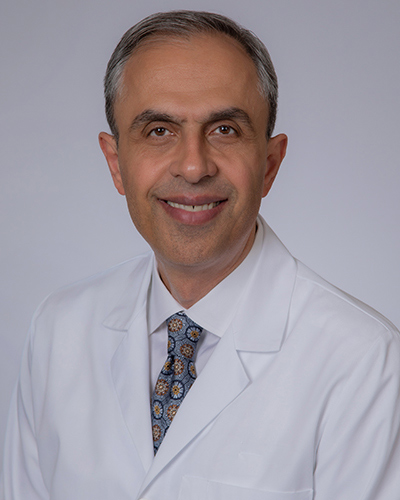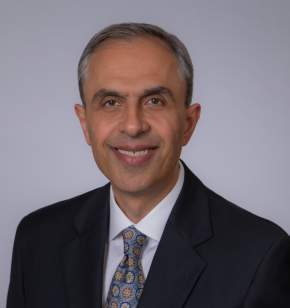Surviving with Chordoma


Surviving with Chordoma
Chordoma is a rare, slow-growing type of bone cancer. It often occurs in the sacrum (sacral chordoma or tailbone chordoma), the spine, or the base of the skull (skull base chordoma). Receiving a diagnosis of a chordoma
can feel overwhelming and isolating. While not all news is good news, it is important to learn more about what to expect so you can better navigate what lies ahead.
Life Expectancy After a Chordoma Diagnosis
The survival rate after a diagnosis of chordoma depends on many factors, such as the specific type of chordoma, its location, the treatment, and your general health. Usually, half of those who are diagnosed with the condition survive at least 5 years. This is known as the 5-year survival rate. This rate can improve to 65% to 70% if the tumor is entirely removed by surgery.
Conversely, if complete surgical removal is not feasible, the 5-year survival rate decreases to 40%. Additionally, individuals with an advanced stage of the disease generally experience a lower 5-year survival rate. Chordomas can be difficult to treat, and recurrence is common. A combination of radiation therapy and in rare cases, chemotherapy may be used to treat recurrent or advanced chordomas. Although these treatments can slow tumor growth and extend survival time in some cases, they generally do not provide a cure for chordoma.
Keep in mind that the 5-year survival rates are only estimates and that everyone’s chordoma experience is different. You should discuss your specific situation with your neurosurgeon.
Progression of a Chordoma
Chordomas are very slow-growing tumors. The rate of growth of the chordomas depends on the specific type of chordoma. Although some chordomas grow rapidly and cause symptoms much sooner, most take years to grow large enough to cause symptoms.
Even if a chordoma is removed completely by surgery, some may appear again later. This is called a recurrent chordoma. These recurrent tumors may grow at a faster rate than the original chordoma. In general, the higher the stage or grade of the tumor, the higher the chance of recurrence. For higher stage or high-grade tumors that are not removed completely during surgery, the recurrence rate can be as high as 50%. In cases of lower stage or low-grade tumors that are removed completely, the recurrence rate is around 20%.
If a chordoma is left untreated, it will continue to grow and cause damage to surrounding tissues and organs. This can lead to pain, weakness, and difficulty moving arms and legs. The chordoma can grow to put pressure on the brain or spinal cord, causing difficulties in breathing, swallowing, and weakness of limbs. The chordoma may also metastasize, which means spread to other parts of the body such as the lungs and bones. At this point, chordoma can become life threatening and is usually considered end-stage chordoma.
Why should you have your surgery with Dr. Cohen?
Dr. Cohen
- 7,500+ specialized surgeries performed by your chosen surgeon
- More personalized care
- Extensive experience = higher success rate and quicker recovery times
Major Health Centers
- No control over choosing the surgeon caring for you
- One-size-fits-all care
- Less specialization
For more reasons, please click here.
End-Stage Chordoma
End-stage chordoma is the advanced phase of the disease, when the tumor has grown considerably and metastasized to other parts of the body. This makes it challenging to manage and treat. During this stage, the main objective of treatment is to alleviate symptoms, enhance quality of life, and extend survival time. Some individuals may choose to prioritize quality of life over prolonging survival.
Signs of end-stage chordoma will depend on the location of the tumor but can include pain at the tumor site, neurological problems, and difficulty with movement due to weakness. Radiation therapy, chemotherapy, and palliative care are among the possible treatment choices at this time. Palliative care aims to alleviate symptoms and enhance the quality of life for individuals suffering from an advanced disease.
Overall, the prognosis for patients with end-stage chordoma is typically unfavorable, and the survival rate is low. Seek advice from a healthcare professional for tailored treatment alternatives and a more precise prognosis.
Life After Treatment
Life after chordoma treatment can vary depending on several factors, including the success of the treatment and the extent of the surgery. Patients may experience side effects from treatment, such as fatigue and pain, as well as numbness or weakness around the surgery area. Depending on the tumor location, you may experience changes in bowel or bladder function. However, physical therapy and rehabilitation can assist in managing these side effects and improving overall function.
Regular follow-up care is essential for anyone with chordoma because the cancer can reappear. Close surveillance and monitoring can help to identify and treat any recurrence as early as possible.
The outcome for patients with chordoma is generally better for those with a more localized, earlier stage tumor. Advances in treatment strategies, techniques, and technology have also improved the survival rates for those with chordoma.
Be sure to collaborate with a team of healthcare professionals, including a cancer specialist, to create a treatment plan and manage your care after treatment.
Key Takeaways
- The survival rate after a diagnosis of chordoma depends on many factors, such as the aggressiveness of the tumor, its location, the chosen treatment, and your general health.
- In general, the higher the stage or grade of the tumor, the higher the chance of recurrence.
- End-stage chordoma is the advanced phase of the disease, when the tumor has grown considerably and metastasized to other parts of the body, making it challenging to manage and treat.











